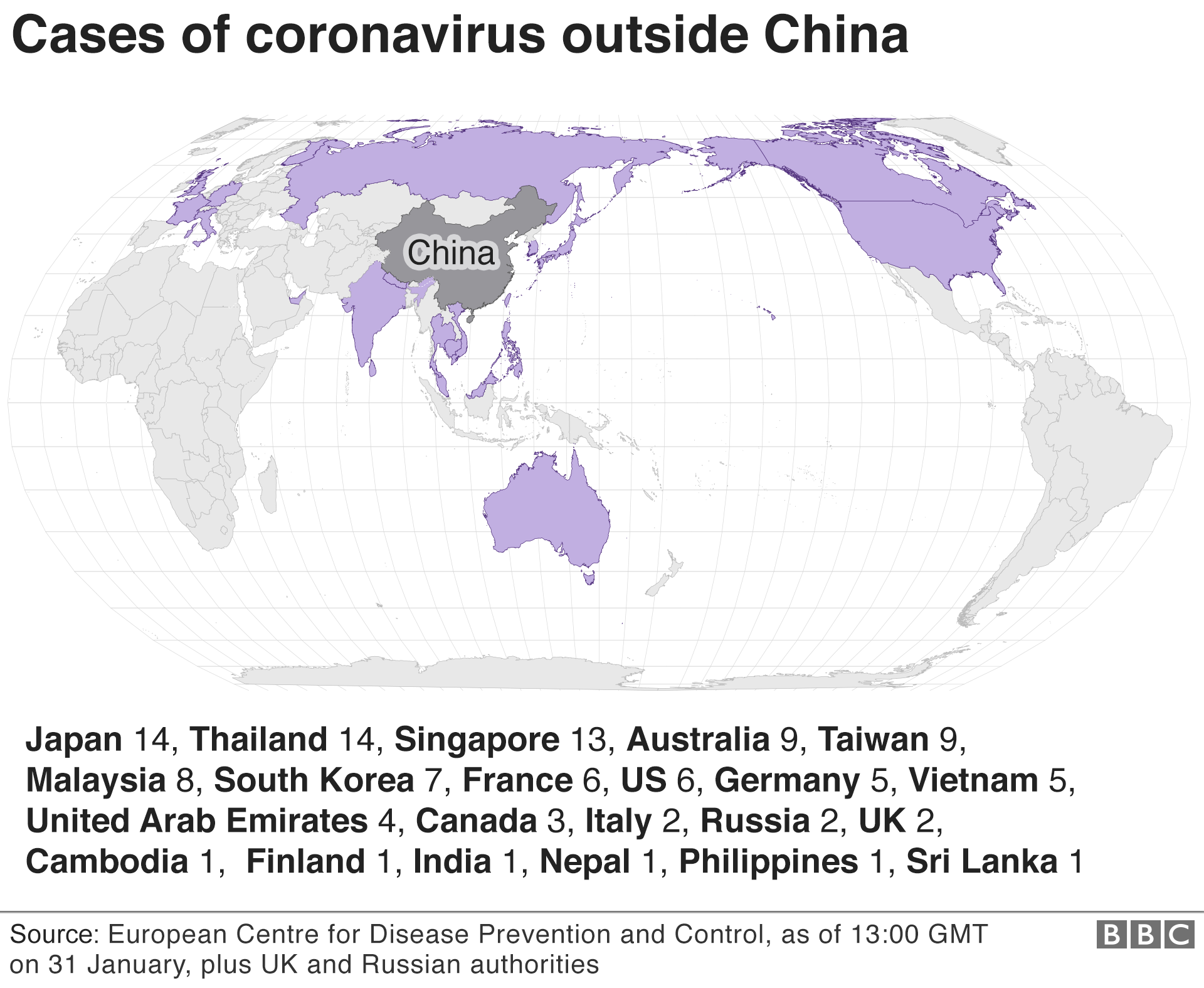
This article is more than
6 year old
The US and Australia said they would deny entry to all foreign visitors who had recently been in China, where the virus first emerged in December.
Earlier, countries including Russia, Japan, Pakistan and Italy announced similar travel restrictions.
But global health officials have advised against such measures.
"Travel restrictions can cause more harm than good by hindering info-sharing, medical supply chains and harming economies," the head of the World Health Organization (WHO) said on Friday.
The WHO recommends introducing screening at official border crossings. It has warned that closing borders could accelerate the spread of the virus, with travellers entering countries unofficially.
China has criticised the wave of travel restrictions, accusing foreign governments of ignoring official advice.
"Just as the WHO recommended against travel restrictions, the US rushed in the opposite direction," foreign ministry spokeswoman Hua Chunying said. "[It is] certainly not a gesture of goodwill."
The death toll from the new virus, which is officially called 2019-nCov, now stands at 259.
All the deaths occurred within China and the majority were in Hubei province, where the virus originated.
Almost 12,000 cases have been confirmed and a small proportion of those - around 100 - occurred outside China. The UK, US, Russia and Germany have all confirmed cases in recent days.
The number of coronavirus cases worldwide has overtaken that of the similar Sars epidemic, which spread to more than two dozen countries in 2003.
But the mortality rate of the new virus is much lower than that of Sars, which has led officials to believe it is not as deadly.

Estimates by the University of Hong Kong suggest the total number of cases could be far higher than official figures suggest. More than 75,000 people may have been infected in the city of Wuhan, which is at the epicentre of the outbreak, experts say.
A string of travel restrictions have been announced in recent days.
The US, which declared a rare public health emergency, banned entry from all foreign nationals who had visited China in the past two weeks.
US citizens and residents returning from Hubei province, where the outbreak started, will be quarantined for 14 days. Those returning from other parts of China will be allowed to monitor their own condition for a similar period.
Another confirmed case in the US on Friday - in California - brought the number there to seven. Robert Redfield, director of the Centers for Disease Control and Prevention (CDC), said 191 people were under observation.
Australia, which announced a similar ban, said any of its own citizens arriving from China would be quarantined for two weeks.
Read More (...)